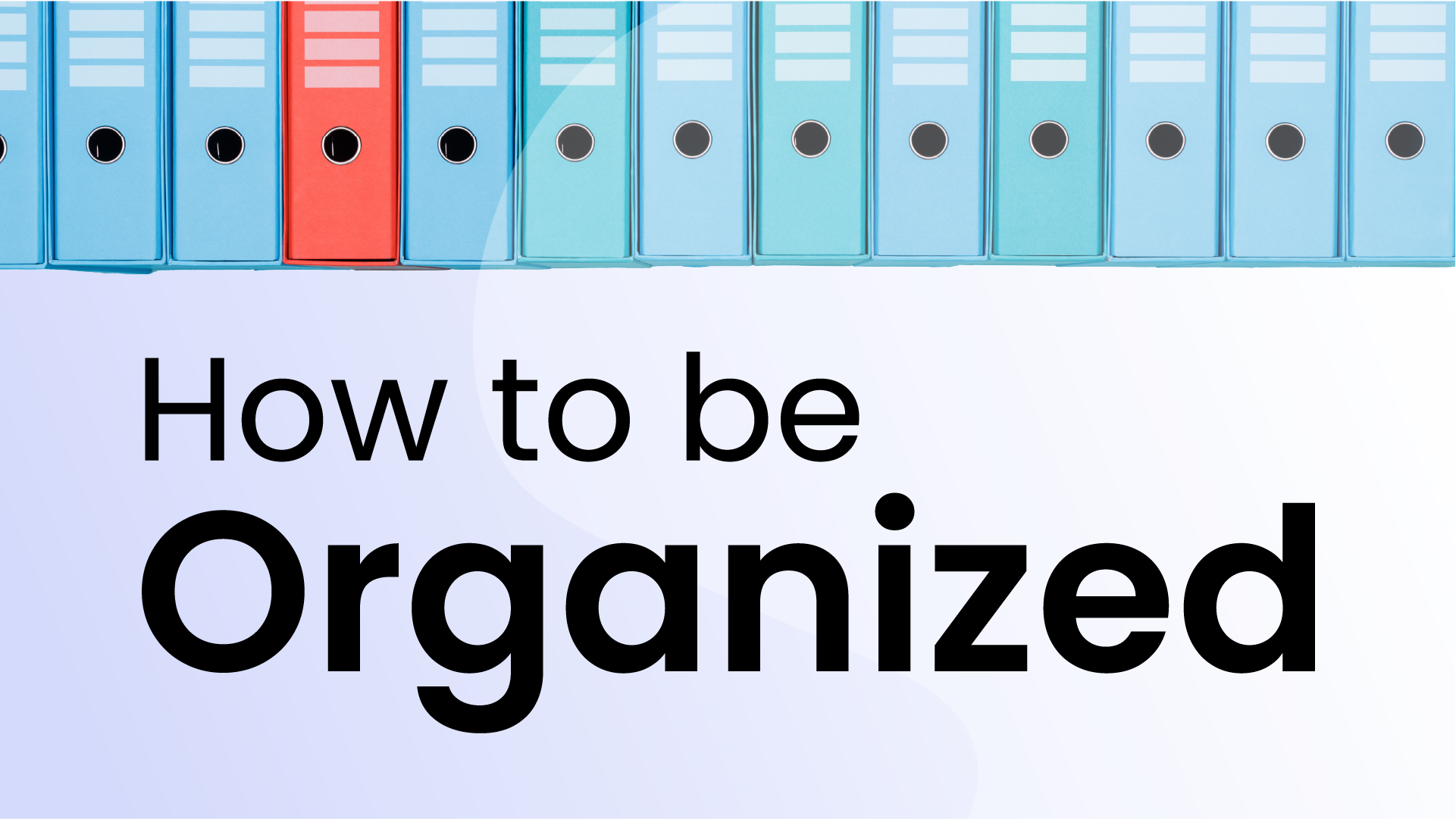Focus. We all know we need it but can never seem to get enough of it. Doesn't matter if you're tackling a work project, studying for an exam, or just trying to finish reading that one book you keep picking up and putting down – staying focused can feel like trying to hold water in your hands.
Why is it so hard to focus? What’s actually happening in your brain when you concentrate – or don’t? And more importantly, how do you fix it? In this guide, we’ll break it all down: what focus is, why it’s elusive, and how to harness it with 18 practical steps.
How to focus in 18 steps:
- Get a hold on your distractions
- Practice focusing
- Get better sleep
- Maintain a healthy diet
- Adopt meditation
- Exercise regularly
- Don’t be afraid to take breaks
- Create a working environment conducive to deep focus
- Work with music
- Get clear about your priorities
- Try different techniques
- Adopt a solid morning routine
- Improve your work-life balance
- Stop multitasking
- Take a walk
- Schedule your deep work sessions
- Find work that feels like play
- Don’t push it
What is focus?
Let’s start with the basics. Focus is your ability to direct your attention toward a single task or thought while tuning out everything else. It's the mental spotlight that illuminates what matters while leaving distractions in the dark. Focus is what allows you to write that report, solve a tricky problem, or even enjoy a book without your mind wandering off to your never-ending to-do list.
But focus and concentration isn’t just about sheer willpower or "buckle down" mentality. It actually involves (and requires) different parts of your brain with the prefrontal cortex (responsible for decision-making, attention, and planning) playing one of the biggest roles. Then, of course, there’s the limbic system, your brain’s emotional command center, constantly evaluating whether a task feels rewarding or, let’s be honest, boring. Together, these systems weigh every task you encounter, asking: “Is this worth my energy?”
Have you ever noticed how easy it is to get lost in something you genuinely enjoy, like a creative hobby or a favorite TV show? That’s your brain deciding it’s worth the effort. On the flip side, when faced with dull or overwhelming tasks, your brain resists, making it harder to stay focused.
Ultimately, focus is a skill, a resource, and even a bit of a negotiation between your brain's competing interests.
Why do we have trouble focusing?
The short answer? Life.
Modern life bombards us with distractions. Phones vibrate, emails chime, and streaming platforms always have the next must-watch show lined up. Add stress, poor sleep, and unhealthy habits to the mix, and it’s no wonder we struggle to stay on task. Our attention gets pulled in a hundred directions before we even finish our morning coffee.
But it’s not just the external world. Our brains are wired to seek novelty, a survival trait from when spotting movement in the bushes could mean avoiding a predator. Today, that same instinct kicks in when we see a notification, drawing us to TikTok or Instagram instead of sticking with that overdue report.
The result? We’re stuck in a tug-of-war between a world full of distractions and a brain designed to chase them.
What are the common causes of a lack of focus?
Before we jump into solutions, it’s worth looking at just a few examples of what might be pulling your focus away:
- Distractions: External (phones, noisy environments) and internal (stress, racing thoughts).
- Poor sleep: Fatigue can sap your mental energy and make it harder to concentrate.
- Unhealthy diet: Blood sugar crashes or a lack of nutrients can mess with brain function.
- Stress or anxiety: These create a mental fog that’s hard to shake.
- Multitasking: Trying to do everything at once is a recipe for doing nothing well.
- Burnout: Overworking without enough rest leads to mental exhaustion.
How to Focus in 18 Steps
Here’s the good stuff: actionable steps to sharpen your focus and regain control of your attention.
1. Get a hold on your distractions
Distractions are a lot like weeds – if you don’t deal with them, they’ll choke out everything you’re trying to grow. And just like gardening, pulling out distractions requires consistent effort and a bit of strategy. The truth is, that we live in a world engineered to grab our attention at every turn, so reclaiming it means taking deliberatea action.
Start with the most obvious culprits: notifications. Every ping, buzz, or pop-up on your phone or computer is a tiny interruption that pulls you out of your flow. Disable non-essential notifications – do you really need to know about every “like” on Instagram or every sale at your favorite store right now?
Set boundaries with people in your life that might affect focus. It’s not always easy, but it’s necessary, especially if you work from home or in a shared space. Family members, roommates, or coworkers may not realize they’re derailing your focus with frequent interruptions. Be upfront about your needs: “I’m working on something important right now; can we catch up later?”
2. Practice focusing (it’s a skill)
Focus isn’t some innate talent you either have or don’t have – it’s a skill, just like learning to play the piano or throwing pottery. And like any skill, it improves with practice.
Here’s how you can practice focusing:
- Pick a single task. Choose something simple to start with – reading a page from a book, writing a short email, or organizing a single folder on your computer.
- Set a timer. Use a timer to create a boundary for your attention. Five minutes is a good starting point, but you can adjust based on your feelings. The timer acts as a psychological cue, giving you permission to focus without worrying about the clock.
- Eliminate distractions. Before you start, take a moment to remove potential interruptions.
- Stay present. During your focused session, if you catch your mind wandering (and you probably will at first), gently bring it back to the task at hand.
Once five minutes feels easy, gradually extend the time. Go from five to ten, then twenty. Over time, you’ll notice your ability to focus grows stronger.
3. Get better sleep
You can’t expect your brain to function at its best when it’s running on fumes. Sleep isn’t just a luxury; it’s a necessity for your mental and physical well-being.
So, how much sleep do you really need? Experts recommend aiming for 7 – 9 hours of quality sleep each night. Although, the exact number can vary slightly from person to person. Consistency matters most here – not just getting the right amount, but maintaining a regular sleep schedule in line with your circadian rhythm.
When you sleep, your brain does some of its most important work. It stores memories, processes emotions, and clears toxins that build up during the day. If you don’t get enough sleep, your decision-making and focus typically suffer. Ever notice how everything feels more challenging after a rough night? That’s your brain trying to keep up. Also, a lack of sleep can make you more irritable and less able to handle stress, which doesn’t help when you’re trying to concentrate!
4. Maintain a healthy diet
What you eat doesn’t just affect the number on the scale – it has a direct impact on your brain’s ability to focus, problem-solve, and stay alert. Without the right nutrients, it struggles to perform optimally.
Certain foods act as fuel for your brain, enhancing cognitive function and focus. Specifically, leafy greens, nuts, fatty fish, berries, and even dark chocolate. Of course, not all foods are your brain’s friend. Some can actively sabotage your focus, especially sugary snacks, processed foods, or too much coffee.
Don’t underestimate the power of water. Even mild dehydration can drain your concentration and energy. Since your brain is 75% water, staying hydrated helps it function efficiently. Aim for at least 8 cups a day, or more if you’re active or in a hot climate.
Finally, it's not just what you eat, but when. Skipping meals, especially breakfast, can cause blood sugar to drop, leaving you irritable and unfocused. Start your day with a balanced breakfast of protein, healthy fats, and carbs, and aim for smaller, nutrient-rich meals or snacks to maintain steady energy and focus.
5. Adopt meditation
Meditation isn’t reserved for zen masters sitting cross-legged on mountain tops – it’s a practice anyone can adopt, no matter how busy or scattered life feels.
Meditation is centered around training your brain to resist distractions and remain present. The act of deep breathing while bringing your mind back to the present moment. Distractions will inevitably creep in, but instead of getting frustrated, you gently redirect your attention over and over again. The attention training that comes when you practice mindfulness can improve your mental stamina, making it easier to stay focused on tasks in your everyday life.
Meditation also reduces stress and quiets the constant mental chatter that can derail your focus. In other words, calming your nervous system and increasing awareness helps create a mental state more conducive to deep concentration.
6. Exercise regularly
You’ve heard it a thousand times: exercise is good for you. But here’s the kicker – it’s not just about building muscle or losing weight. Regular physical activity (especially aerobic exercise) is one of the best ways to sharpen your mind and improve your focus.
When you exercise, your heart pumps more blood, delivering oxygen and nutrients to your brain. With increased circulation comes the growth of new brain cells and enhanced connections between existing ones.
Exercise also releases endorphins and boosts dopamine, serotonin, and norepinephrine levels – neurotransmitters involved with attention, mood, and motivation. On the flip side, regular movement also reduces cortisol (the stress hormone), helping your brain stay calm and focused under pressure.
7. Don’t be afraid to take breaks
When you’re in the zone – or at least trying to be – it can feel counterproductive to step away. But powering through fatigue doesn’t make you a hero. It makes you less effective.
Just as your legs tire after a long run, your mind becomes less sharp the longer you push it. Breaks give your brain the chance to recover, process information, and prepare for the next stretch of deep work. Studies show that regular breaks can improve concentration, creativity, and problem-solving skills.
Breaks also help combat decision fatigue, the gradual decline in your ability to make good choices as your brain becomes overloaded. A few minutes away from your desk can refresh your mental reserves, making it easier to prioritize and think clearly.
8. Create a working environment conducive to deep focus
Your workspace is more than just a place to sit – it’s where your focus thrives or dies.
Your brain won’t work at its peak if your environment is chaotic or distracting. Your senses – sight, sound, touch, even smell – constantly feed information to your brain, which can either support or hinder your focus.
A cluttered desk, too much noise, or poor lighting all signal to your brain that something isn’t quite right. These distractions prevent you from achieving deep concentration. But when your environment is organized, quiet, and optimized for focus, you can better slip into that flow state where your productivity soars.
9. Work with music (the right kind anyway)
Ah, music – the great productivity booster (when used right). There’s something about having a soundtrack to your work that can make everything feel more energized and less like a slog. But, not all music is created equal when it comes to focus. Some tunes may get you in the zone, while others will do just the opposite, pulling your attention in every direction but the task at hand.
For some, silence is golden. But for others, having music in the background can help drown out the noise of the world and boost concentration. Research suggests that certain types of music can stimulate the brain, improve mood, and even increase productivity. But there’s a catch – what works for one person might not work for another. So, you'll have to find your own rhythm when it comes to using music to fuel focus.
Even after trying different styles and genres, you might find that music isn’t your productivity superpower after all. That’s totally okay. Some people simply work better in complete silence or prefer background noise that’s less musical and more ambient. Listen to your own brain – if music isn’t enhancing your focus, ditch it and explore other ways to boost your concentration.
10. Get clear about your priorities
It’s hard to focus when you’re not sure what to focus on in the first place. Ever find yourself staring at your to-do list, feeling overwhelmed by everything that needs to get done? Maybe you have a dozen tasks piling up, but none of them seem to be more important than the other. You end up jumping from one thing to the next, never fully committing to any single task, and before you know it, the day’s over – and you’ve hardly made any real progress.
A lot of the time, the root cause of our lack of focus is simple: we haven’t clarified our priorities. Without a clear sense of what’s most important, we can easily get lost in the noise, distracted by the less pressing tasks that just seem easier to knock off.
Prioritization isn’t just about crossing things off – it’s about understanding what truly moves the needle and focusing your attention on those tasks. Start by asking yourself:
- What’s going to have the most impact on my work?
- What can’t I afford to put off?
When you can answer those questions, you’ve unlocked the key to staying on task. Once you’re clear on what needs to come first, everything else falls into place more easily.
11. Try different techniques
When it comes to staying focused, there’s no one-size-fits-all solution. Different tasks, moods, and environments can affect your concentration, and sometimes the best way to find your focus is through experimentation.
The Pomodoro Technique is one of the most well-known methods for enhancing focus, and for good reason. It’s deceptively simple but effective. It involves working in focused 25-minute intervals, followed by a 5-minute break. After completing four cycles, take a longer break of 15–30 minutes to recharge.
Another simple, but effective method is the Five-Minute Rule. The idea here is to get started when you’re stuck in the inertia of procrastination. The premise is simple: commit to just five minutes of work. This is perfect for those times when tackling a large project makes you want to run in the opposite direction. You don’t have to commit to doing the entire task – just start by promising yourself five minutes of work.
There are countless other productivity techniques out there – Time Blocking, the 2-Minute Rule, and Eat the Frog to name a few. Don’t be afraid to mix and match techniques, either. Maybe Pomodoro works great for your work tasks, but you find the Five-Minute Rule to be a better fit for personal chores. The important thing is to have a few strategies at your disposal so you can switch things up depending on your task and mood.
12. Adopt a solid morning routine
How you start your day can make all the difference. The first few hours after waking up set the tone for everything that comes after. If you roll out of bed and plunge straight into the chaos of emails, meetings, or scrolling through your phone, it’s no wonder you’re feeling scattered and unfocused.
A solid morning routine doesn’t need to be overly complicated, but it does need to be intentional. By carving out time for critical activities – maybe it’s exercise, a healthy breakfast, or goal-setting – you’re setting the foundation for the focused, productive day you want to have.
The beauty of a morning routine is that it’s entirely customizable to fit your lifestyle and preferences. Some people prefer to wake up early to have time for self-care, while others find they’re more productive with a later start. It’s about finding what works for you.
13. Improve your work-life balance
It’s easy to fall into the trap of believing that the more hours you work, the more productive you’ll be (especially when some of society's richest people tell you exactly that). But here’s the harsh truth: burnout is the enemy of focus. When your brain is overworked and exhausted, it becomes nearly impossible to maintain the concentration and energy needed for high-quality work.
While it might seem counterintuitive, taking regular breaks and scheduling downtime is actually an important part of being more productive. You’re not a machine – your brain and body need rest to recharge, process information, and maintain peak performance. When you’re constantly in work mode – checking emails during lunch, responding to texts after hours, or staying late at the office – your brain gets overwhelmed, stress levels rise, and your ability to focus diminishes.
So don't be afraid to take a load off from time to time – your focus will thank you.
14. Stop multitasking
Maybe you’re answering emails while trying to finish that report, or chatting with a colleague while drafting a presentation. It feels like you’re making headway on all fronts, but the truth is, multitasking isn’t the efficiency booster we think it is. In fact, it’s quite the opposite. It’s actually more distracting than helpful.
The human brain isn’t built to focus on two complex things at once. When you try to multitask, your brain switches back and forth between tasks, which can be mentally exhausting and ultimately inefficient. This constant switching reduces your cognitive capacity and leads to more mistakes. Instead of getting more done, you’re slowing yourself down.
It’s not that multitasking is impossible – our brains are capable of handling multiple things at once, but not when it comes to tasks that require active thinking. You can walk and chew gum because neither action requires much mental effort. But try to write an email and listen to a podcast and you’ll find your brain struggling to process both tasks at the same time.
15. Take a walk (preferably in nature)
Sometimes, the best way to regain focus is to step away and give your brain a break. But not just any break – taking a walk, especially in nature, can improve cognitive function and overall well-being. It might seem counterintuitive at first: after all, how can stepping away from your work improve focus? However studies show that nature walks not only give your mind a much-needed rest, but they can also re-energize your cognitive abilities and help you think more clearly.
How often do we sit at a desk, staring at a screen, trying to force ourselves to focus for hours on end? It’s exhausting, isn’t it? The constant push to keep going can lead to mental fatigue, burnout, and a decrease in productivity.
When you walk in nature, your brain gets a break from the relentless stimulation of modern life – you know, loud traffic, endless notifications, and constant background noise. Nature, on the other hand, offers something different: a quiet, calming environment that allows your brain to reset.
16. Schedule your deep work sessions
Deep work – the kind of work that demands your full concentration and cognitive resources – requires uninterrupted time. The best way to get more of this type of focused work done is through intentional scheduling. In other words, you should block out time on your calendar for deep work sessions.
Without scheduling dedicated focus time, our work often gets pushed aside for more immediate tasks (like answering emails or attending meetings) that don’t require the same level of cognitive investment. Over time, this leads to task overload and a lack of progress on important goals. Setting time aside for deep work, on the other hand, guarantees that your most important projects get the attention they deserve.
Deep work sessions work best when they’re consistent, so aim to schedule them regularly, ideally every day. With time, your brain will get accustomed to these focused periods and will naturally improve its ability to engage with tasks during those times. The more you practice focused work, the easier it becomes.
17. Find work that feels like play
There’s nothing quite like the flow state that comes when you’re working on something you truly enjoy. Time flies, your mind is razor-sharp, and distractions barely exist. It feels effortless, almost like play.
When you love what you do, focus doesn’t feel like a chore – it feels natural. You're so engrossed in the task that you lose track of time. There's no need to force yourself to stay on task because your work doesn’t feel like work.
Passion activates the brain’s reward system. It triggers the release of dopamine, the "feel-good" neurotransmitter that motivates us and keeps us engaged. When you're doing something you care deeply about, your brain signals, “This is worth paying attention to.” The longer you stay engaged, the more dopamine you get, creating a positive feedback loop.
When you're genuinely excited about a task or project, distractions don’t stand a chance. Your thoughts and energy align with the task at hand, making you more productive without the same mental strain required for less enjoyable tasks.
18. Don’t push it
We’ve all been there: sitting at our desks, trying to power through a mountain of work, convinced that if we just keep at it, we’ll maintain focus and get everything done. But pushing yourself beyond a certain point doesn’t lead to productivity. Rather, it leads to burnout, mental fatigue, and a drop in performance.
Focus isn’t a never-ending resource – it's more like a muscle that gets fatigued the longer you use it. The optimal amount of time for sustained deep focus is around 90 minutes. After that, your brain starts to tire, and its ability to concentrate diminishes.
The 90-minute focus cycle is supported by something called Ultradian rhythms, which are natural cycles that occur in the body throughout the day. These cycles typically last about 90 minutes, during which your energy and concentration peak. After that, the body naturally craves a break. Once your focus dips, give yourself a real rest, not just a quick scroll through social media or a "mental break" that leaves you distracted. If you ignore these natural cycles and keep pushing, you’re working against your body’s needs, which leads to diminishing returns.
Unlock your full potential with better focus 🔍
Getting the hang of mental focus isn't something that happens overnight, but with the right strategies, it’s totally doable. By understanding how focus works, setting up your environment to support it, and using tricks like mindfulness and time-blocking, you can make big strides. Start small, keep going, and before you know it, staying focused will feel more natural.
So, take it one step at a time, be kind to yourself, and enjoy the process of becoming more present in your work and life. You've got this!







































